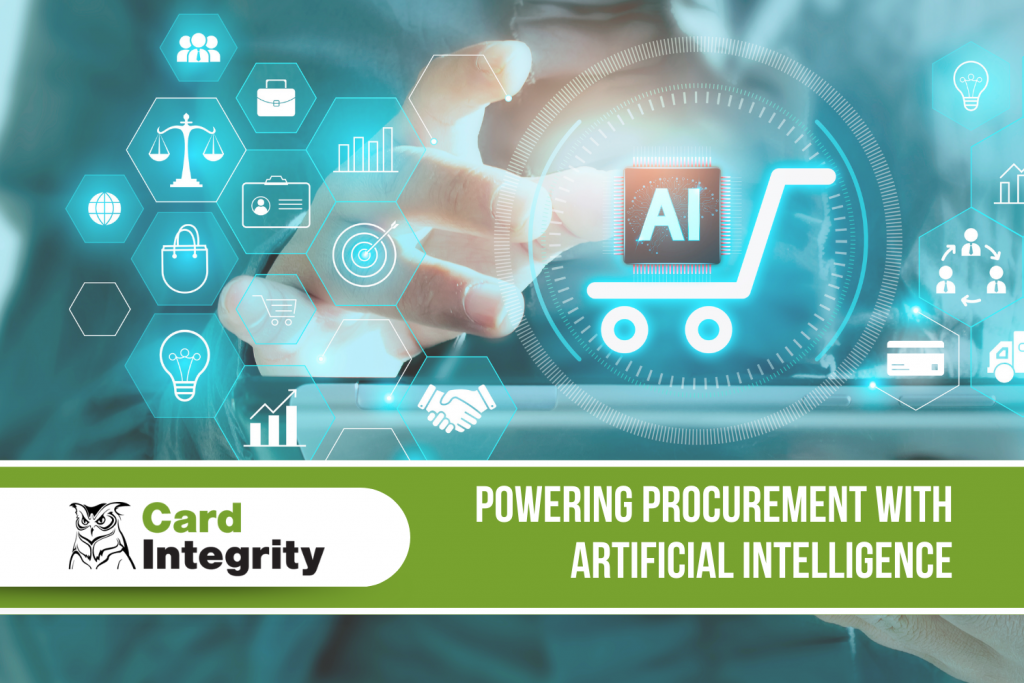Science fiction has long warned us about the rise of artificial intelligence. Movies, novels, animation, and pop culture have conjured up images in our minds of AI rebelling against human civilization and causing catastrophe. As you may have noticed, AI has been a hot-button issue recently, not just in the world of procurement, but on a global scale. ChatGPT was met with significant excitement when it burst onto the scene in late 2022, but also distrust and wariness. Is AI really going to make all of our lives easier?
Discussing the complexities of artificial intelligence and its impact on human civilization as a whole is probably out of the scope of this blog post. But what we do aim to discuss is artificial intelligence specifically as it relates to procurement. How do you incorporate it? How do you harness it and used as a tool? Is it a threat to anyone’s job? And at a more basic level, what is it, exactly?
Table of contents
What is artificial intelligence?
AI is defined simply and succinctly by Merriam-Webster as “the capability of computer systems or algorithms to imitate intelligent human behavior.” The two abilities that turn “just an algorithm” or “just a computer system” into what we would categorize as intelligence are perceiving and learning. We are at a point where artificial intelligence can perceive data and learn from it, and have been for awhile.
However, artificial intelligence is not “conscious” or “sentient”. It cannot explain its decisions, it cannot make moral judgements, and it does not feel sympathy or empathy. And importantly for the purpose of this discussion, it cannot fully replace human workers.
That doesn’t mean that peoples’ jobs won’t change. AI can assist in tasks such as management and negotiation but cannot lead those initiatives. In some industries, such as manufacturing, there is serious concern around automation and AI as it pertains to job security, and with good reason. When the workplace is an assembly line, a robot is cheaper, more productive, and doesn’t make mistakes. We are beginning to see highly repetitive jobs like these get replaced. But in an environment that deals with people so keenly as procurement does, AI should be considered a tool, not a threat.
How is artificial intelligence being used in the procurement industry?
Now that you know what artificial intelligence is, you may wonder how it is currently used in the procurement industry. As you know, with procurement comes large quantities of data. The sheer volume can overwhelm human workers. Luckily, data management is something of a specialty for artificial intelligence. Since AI is still relatively new, things will likely evolve and change in the coming years as it is incorporated more and more.
AI has the potential to completely revolutionize and change the procurement industry. Already, we can start to see its influence in a few key areas:
- Policy compliance. This is perhaps the most intuitive area where AI can be used as a tool. It can identify anomalies in spend behavior and flag them for review.
- Predictive modeling. AI creates models that predict future spending behavior to detect risks. This may be especially relevant when organizations aim to integrate procurement into other supply chain processes, such as inventory management.
- General clerical use. This includes scanning and organizing purchase orders, insurance management processes, travel booking, and similar uses.
The AI built within Card Integrity’s services processes substantial amounts of spend data and identify anomalies. The algorithm recognizes typical behavior and atypical behavior, at categorizes them as such. We often illustrate it like this: as the algorithm processes data, it creates something like a center core which is home to most all of that data. As commonalities arise, they are added to that center core, but when something diverges significantly, it is sorted outside that center core. Then it creates an alert and flags the suspicious activity for review.

So to sum it up, artificial intelligence in procurement is primarily used to identify and flag anomalies and policy non-compliance. Of course, there’s an essential element in this entire process: the human element.
Limitations and the importance of the human element
For every client, Card Integrity assigns a forensic analyst that examines the processed data and filters out false flags. Not everything that the AI flags as an anomaly is necessarily a breach of policy. Some common sense can be applied here: and that’s a bit of a blind spot for AI. The forensic analyst will also act as a sort of “liaison” between our client and the data, which is a role that AI is simply not equipped to handle. Our clients’ policies are often highly specific to their organization, and having a real person that they can talk to is an important part of the process.
In fact, any role where human beings are involved with communicating with other humans is unlikely to go away any time soon. Artificial intelligence may be particularly proficient at sifting through procurement data, but when it comes to communicating with each other, humans have a distinct advantage for the foreseeable future.
Get the best of both worlds with Card Integrity’s DataWISE service
Card Integrity’s DataWISE spend analysis service combines the best of both worlds. We harness AI as a tool, but our service is all about the people. Our forensic analyst is assigned to manage your reports, make custom changes as you request, and answer questions to completely optimize and tailor the service to your organization’s needs.
If you’re ready to see it in action, schedule a demo here.



